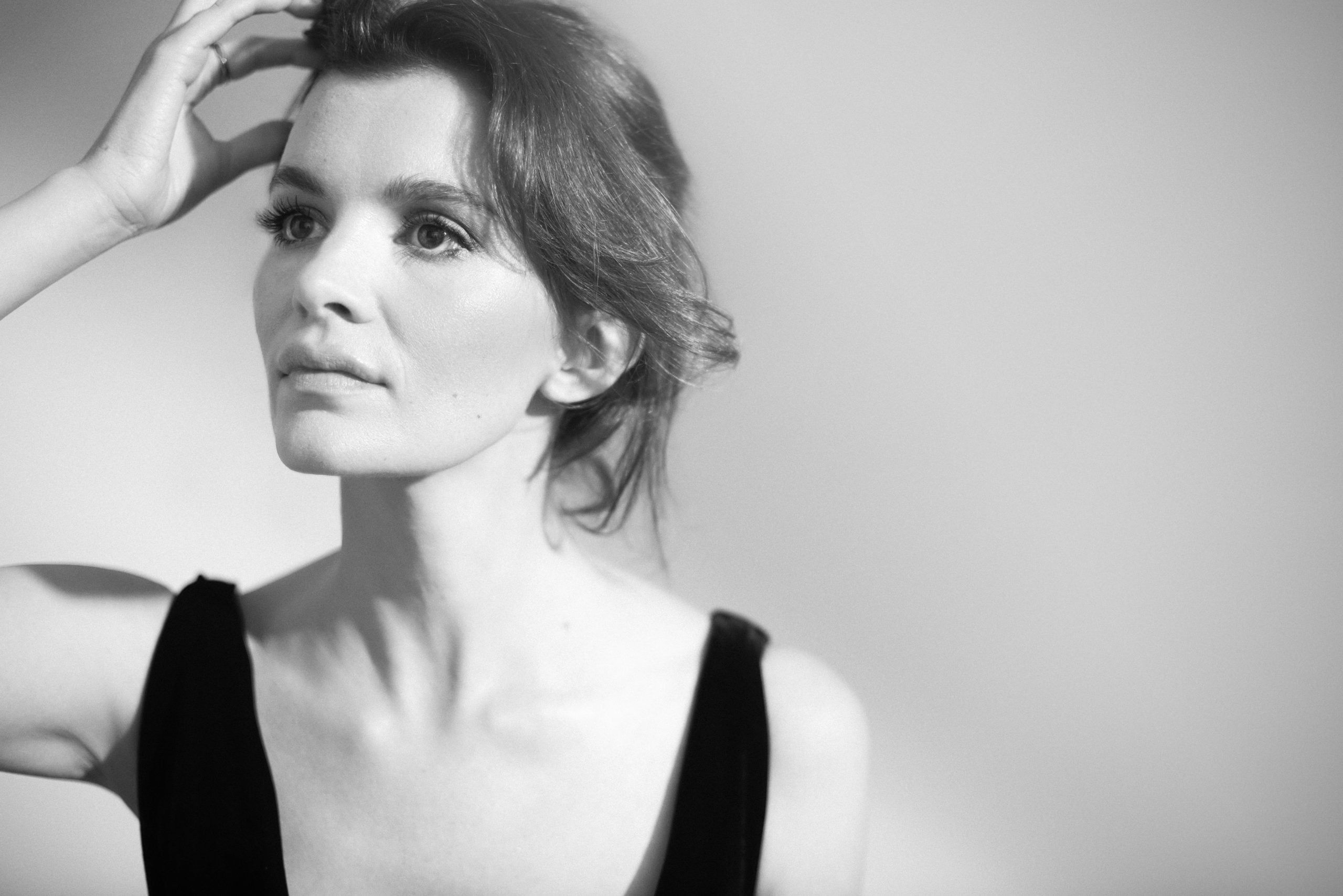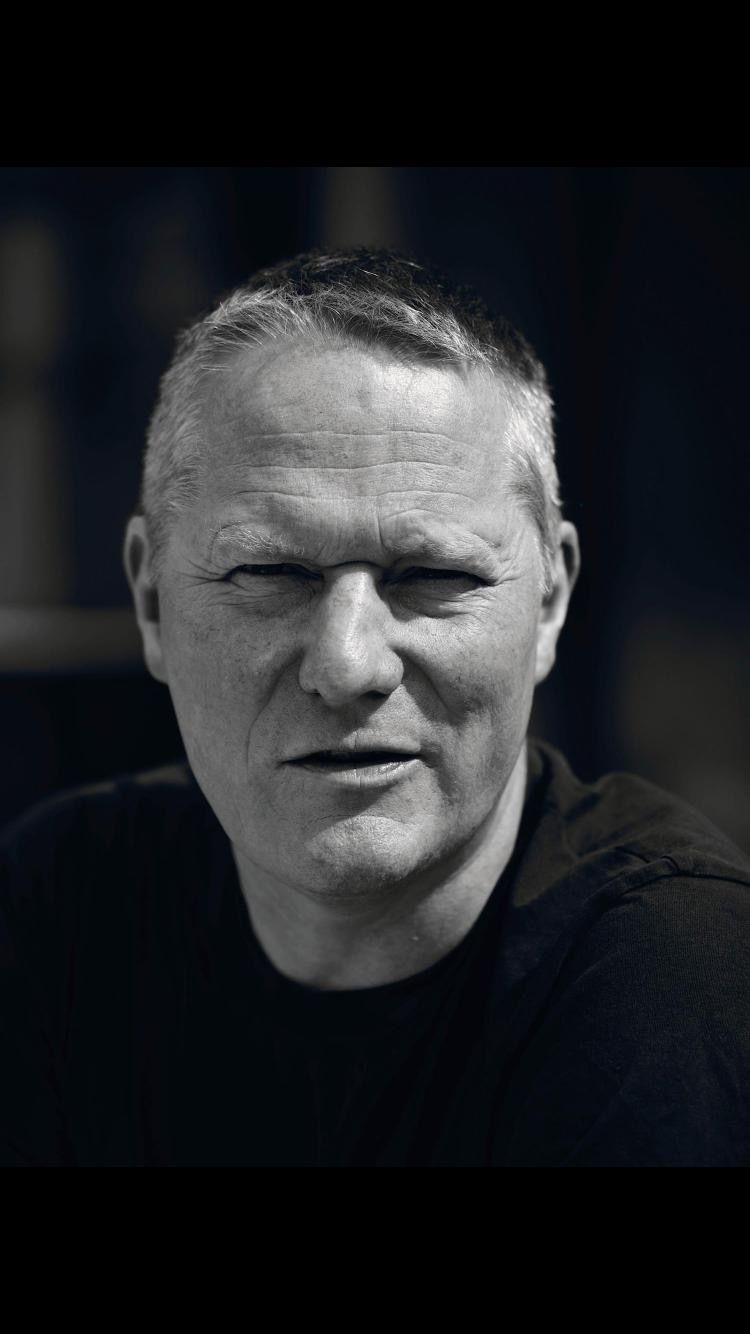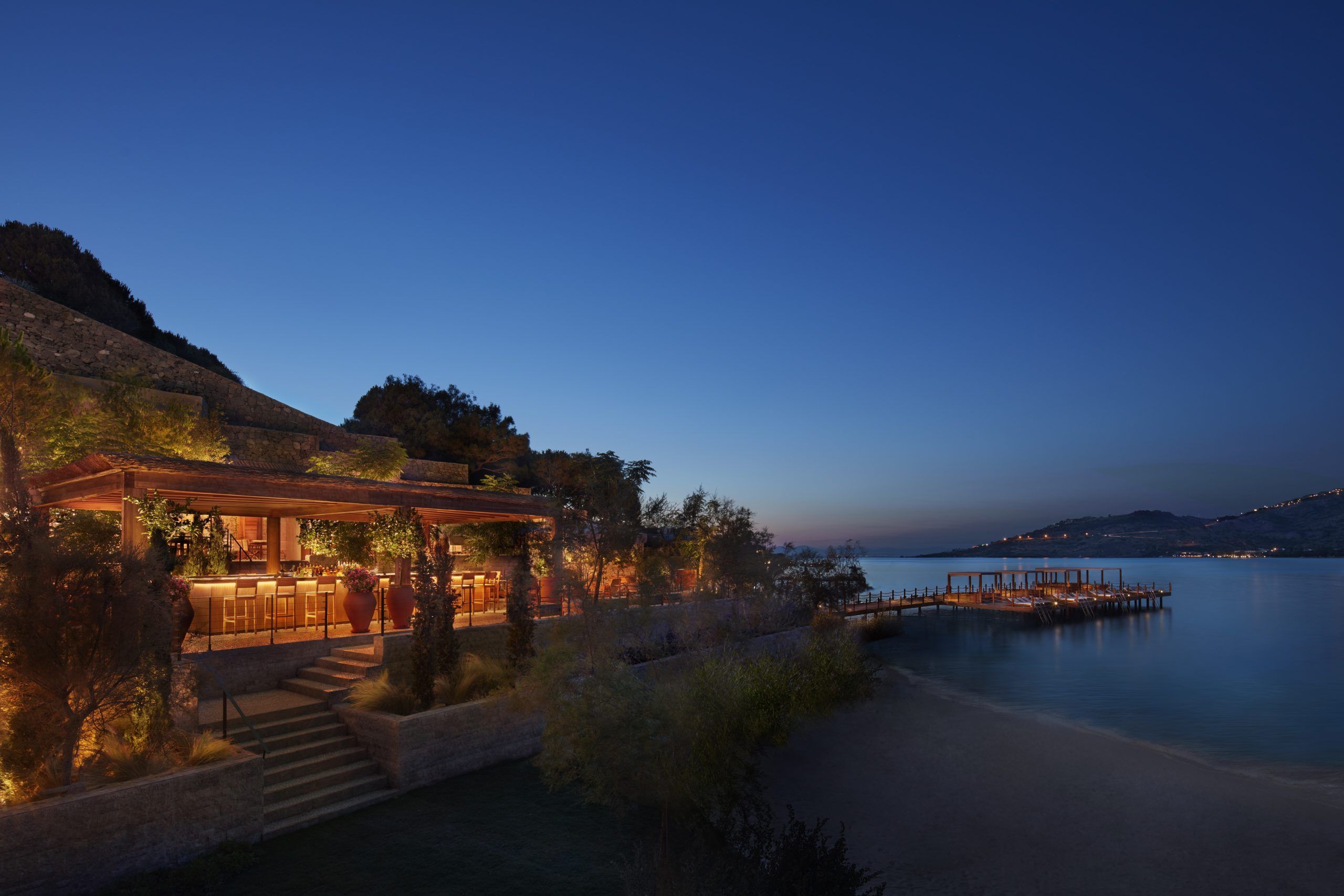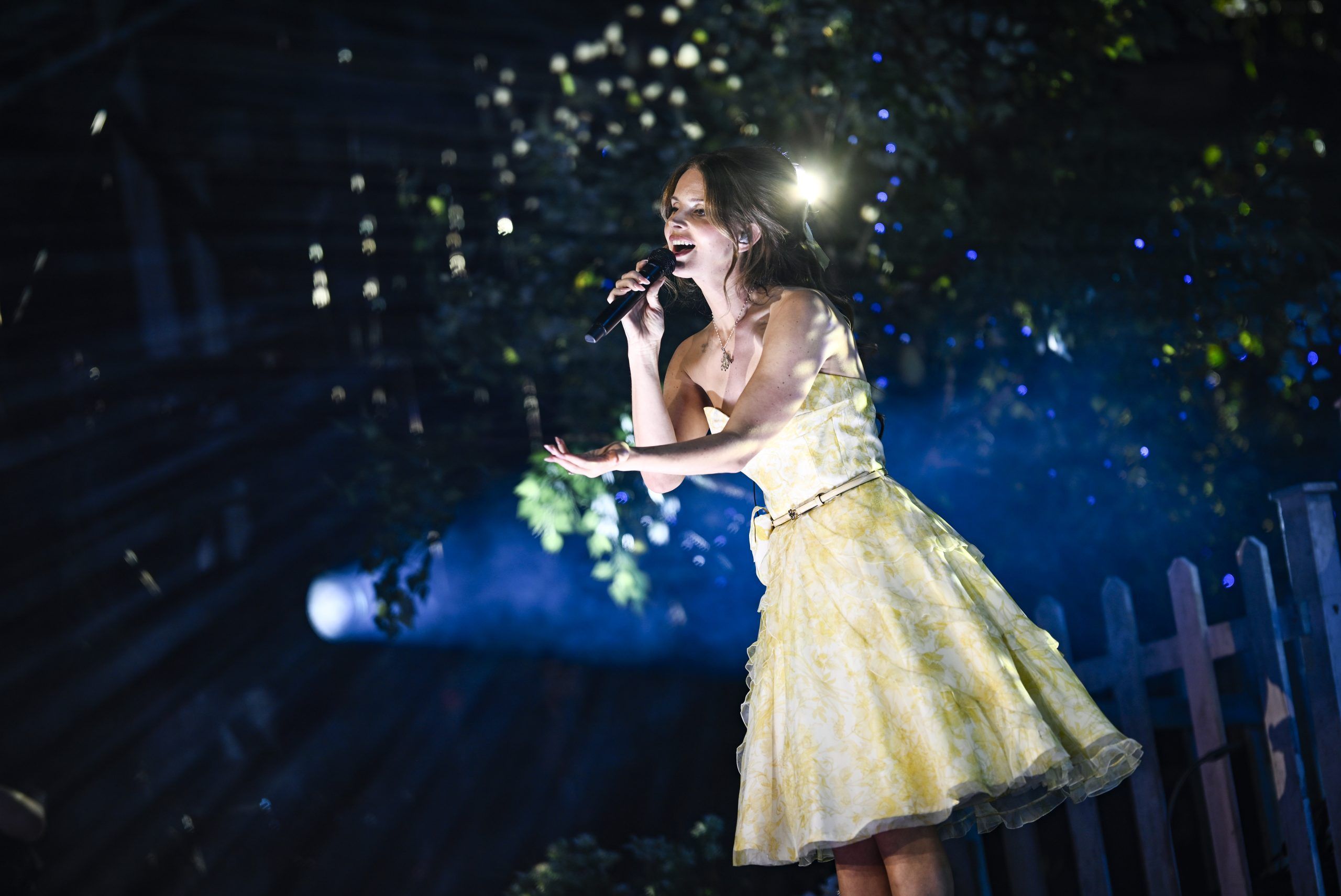Actress Emily Barber is unveiling her star power and shining bright in Backstairs Billy on London’s West End.
Set in 1979 London, Backstairs Billy tells the story of the Queen Mother and her beloved ‘page of the backstairs’ William ‘Billy’ Tallon, who came into her service at age 15 up until her death in 2002. Director Michael Grandage has assembled a stellar cast led by Penelope Wilton as The Queen Mother and Luke Evans as Billy, and the play cannot help but charm audiences with a delicate balance of comedy, sincerity and some moments of heartfelt sorrow. The script by Marcelo Dos Santos allows for some laugh-out-loud, farcical moments brought to light by the brilliant actors, some who play multiple roles.
Emily Barber plays both Annabel Maud — an actor from The Queen Mother’s favourite soap operas and Lady Astlebury, a socialite. With her brilliant comedic timing, she brings both of these characters to life in such a way that has audiences laughing out loud. She seamlessly embodies the complexities of portraying two roles in one show but Barber’s ability to connect with her roles on a profound level has established her as a true force to be reckoned with in the world of theatre. In turn, the ensemble characters in Backstairs Billy elevate the world that we the audience have been placed in and bring both some large and small moments of some of the play’s finest comedic moments.
1883 Magazine’s Amelia Walker speaks to Emily Barber about Backstairs Billy, how the show came together, and how UK audiences are reacting.
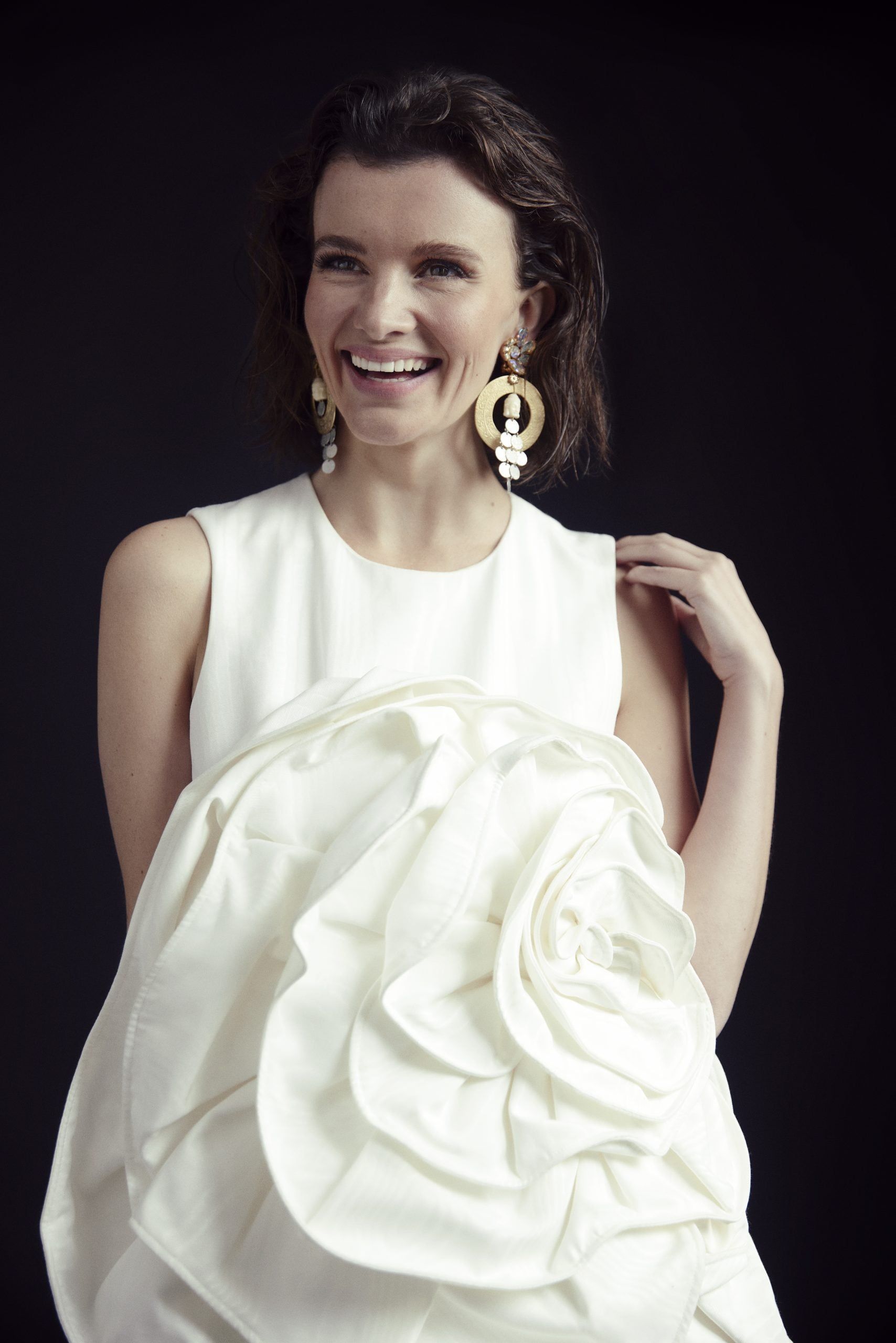
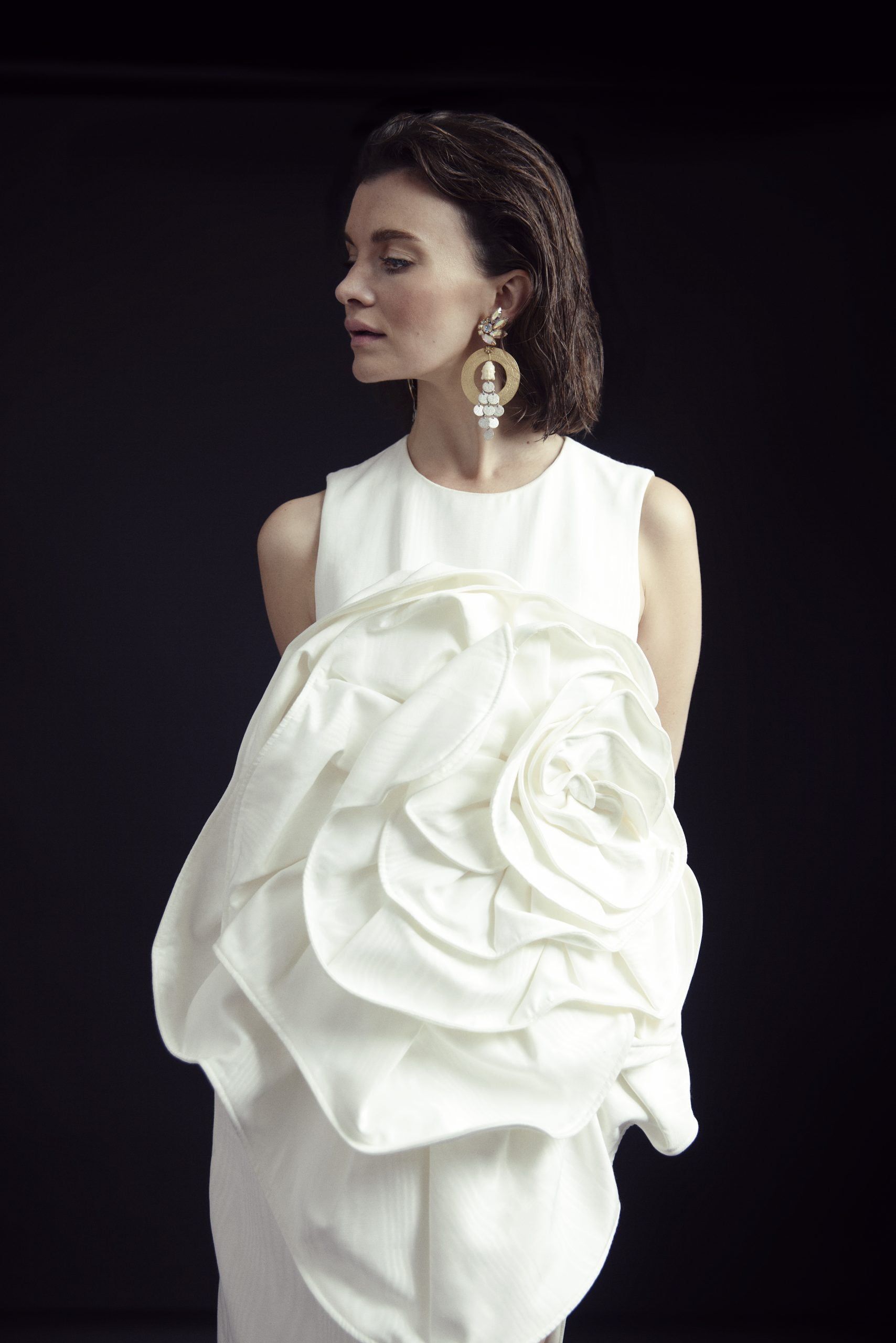
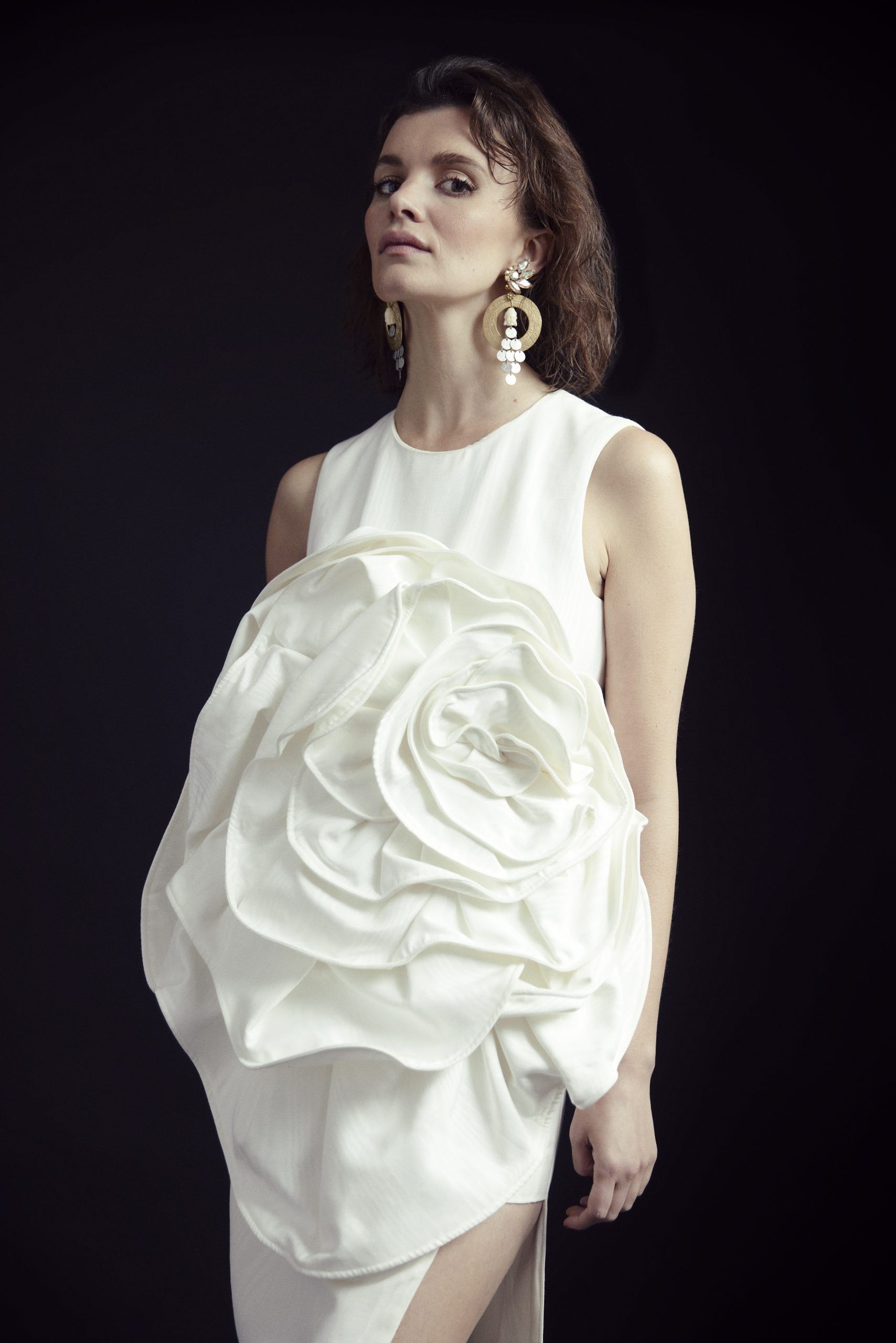
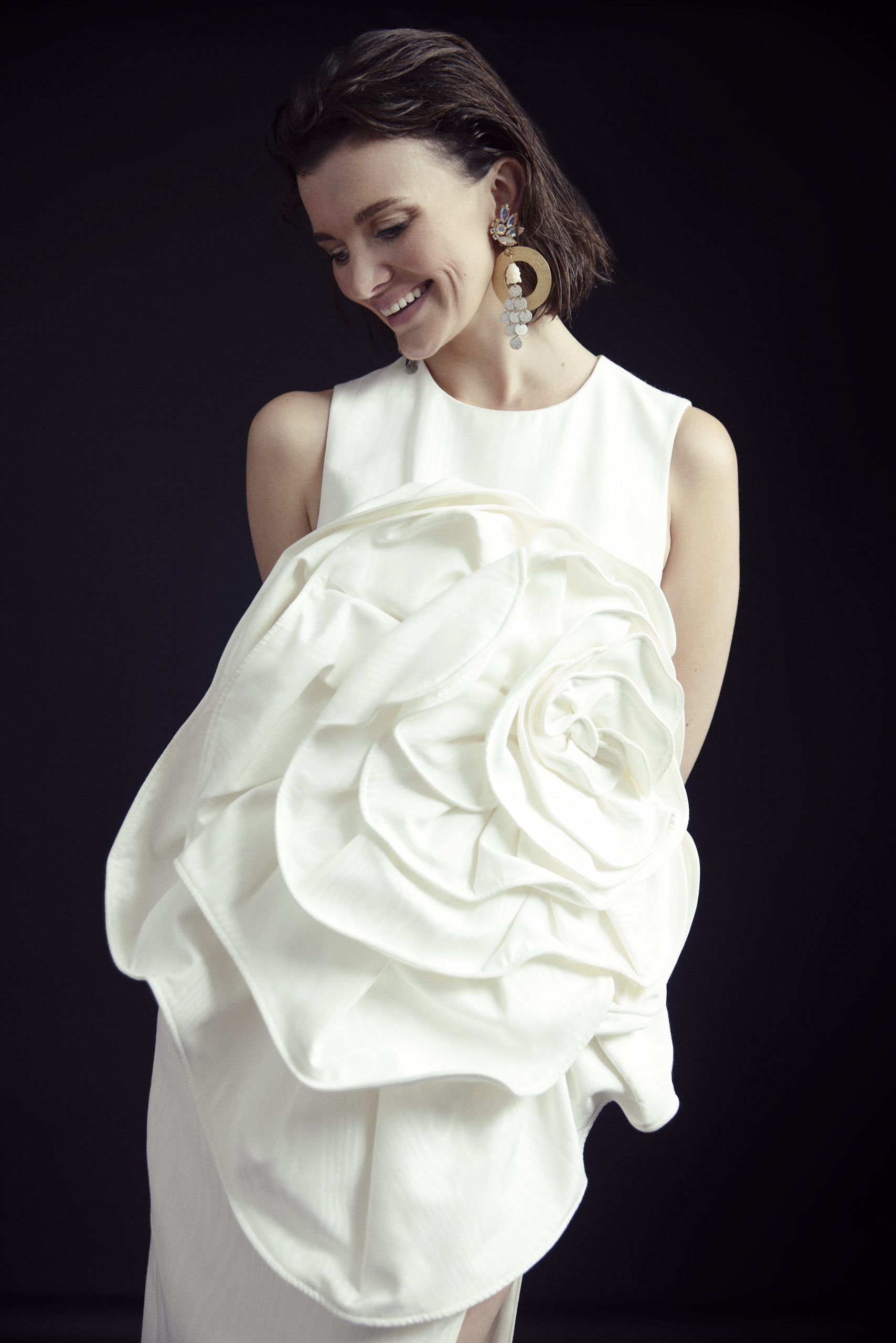
dress Huishan Zhang jewellery PK BIJOUX
Everyone is raving about the play! Can you tell us a little about Backstairs Billy?
The play is set in 1979, and it is a kind of comic imagining of what it would be like inside The Queen Mother’s residence. It’s a real insight into this very unique and beautiful relationship between Billy, who was a page of the backstairs — that was his official title — and The Queen Mother. He actually worked with her for over 50 years.
Something that I liked was, yes, it is a comedy but it also has a lot of heart to and it’s quite poignant. Some moments almost made me cry. How are you finding audiences are responding to it
It’s interesting because I’ve done comedies, I did a comedy in the West End before and it was an Oscar Wilde – so you knew the audience already knew the play, they know exactly where the punch lines are. Whereas with this, it has been fascinating through the previews, just realising that we’ll have one audience where they are just hysterical throughout and then we’ll have one but a slightly more reserved and they’ll be laughing at completely different things. I think Marcel [Dos Santos] has written something interesting and unique. He’s got a specific timing of his own in terms of comic timing. I think people are expecting a real laugh-out-loud comedy and, of course, some moments have a farcical element to it.
I’m playing two guests who visit Clarence House and a lot of my sections of pure comic but actually, there are moments where Penelope plays The Queen Mother on her own there’s a real view into loneliness. There’s also the political climate it is set in, 1979, there’s a huge amount about the year, and we know now that the UK is about to go into the winter of discontent and Margaret Thatcher is about to come into power. There was a lot of civil unrest and riots, this is all going on outside of this setting but Billy makes this wonderful world for The Queen Mother inside of Clarence House, she has champagne receptions and everything is business as usual, but outside it is far from that, and there are moments that recognise that.
As you said, your characters are both guests and are very, very funny. How are you finding playing the comedy?
It’s fun. Anyone who has seen it who is a friend of mine, the first thing they said is how much fun I look like I’m having, and I am! There are three of us who play guests in the first half and then completely different guests in the second half. In the first half, we’re particularly nervous guests, I’m playing an actress who is from a sitcom and it’s Her Majesty’s favourite sitcom. She is used to being very social but, in that environment, she gets incredibly tongue-tied and stressful, and I think that is very comic because we have all been in those situations where you find yourself in a strange experience. I think meeting royalty is bizarre, you know, not many people can understand what that’s like. Michael Grandage, our director, spoke about Ian McKellen, who apparently had a very similar experience – when he met, the royal family he just completely lost the plot and I think that is something that is very funny.
With the second half, there’s this farcical element that comes in and I’m loving it because I had forgotten from doing The Importance of Being Earnest, how that farcical element feels to experience it with the audience because you have to be listening to them, as much as you are listening to your other actors, but you’re listening and working out if they’re getting the plot and which bits they’re finding funny and then riding those audience laughs That’s what was great about the preview period, learning to ride those laughs and making sure that we don’t have to keep stopping for the audience to laugh, but actually kind of building the laughter to bigger moments.
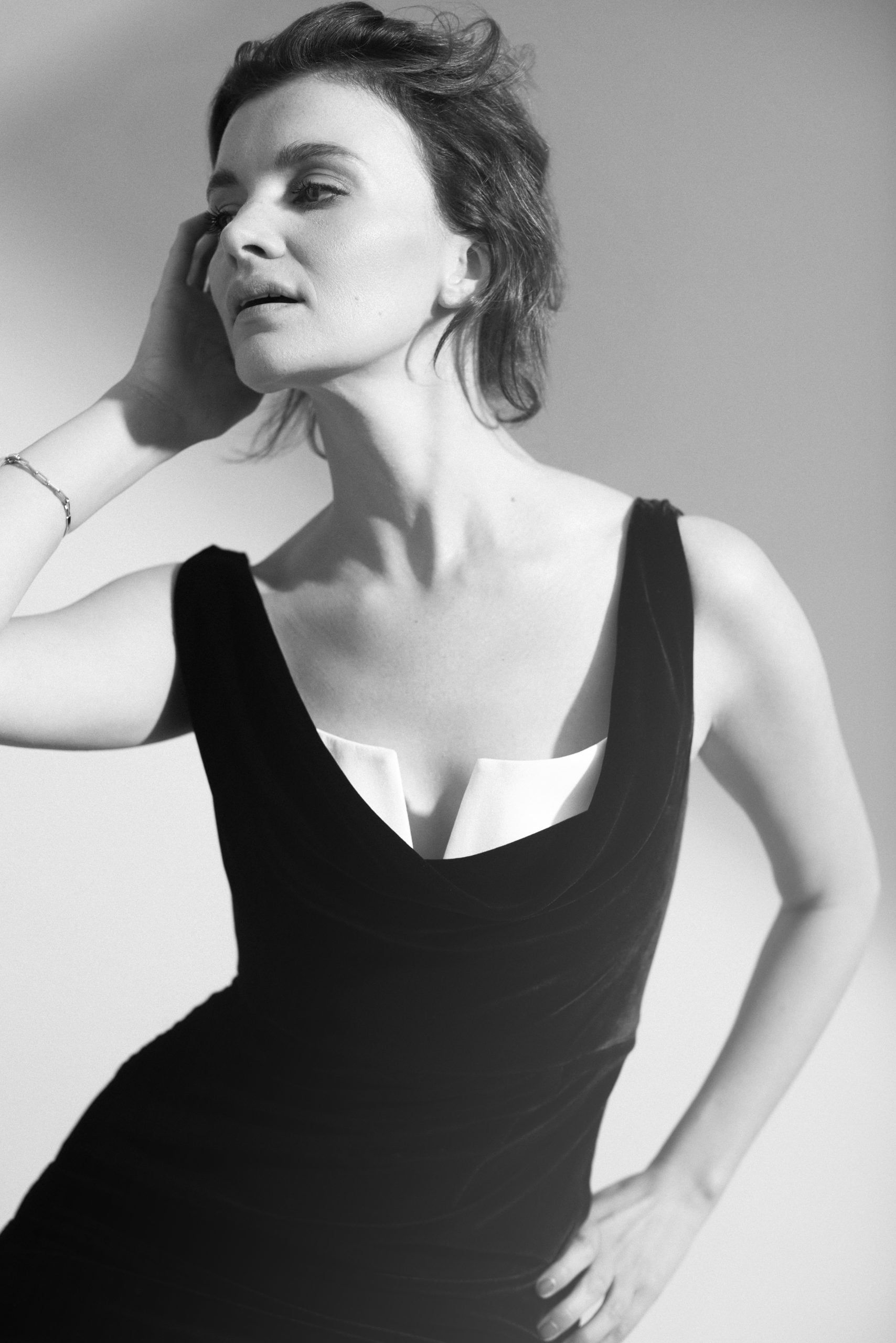
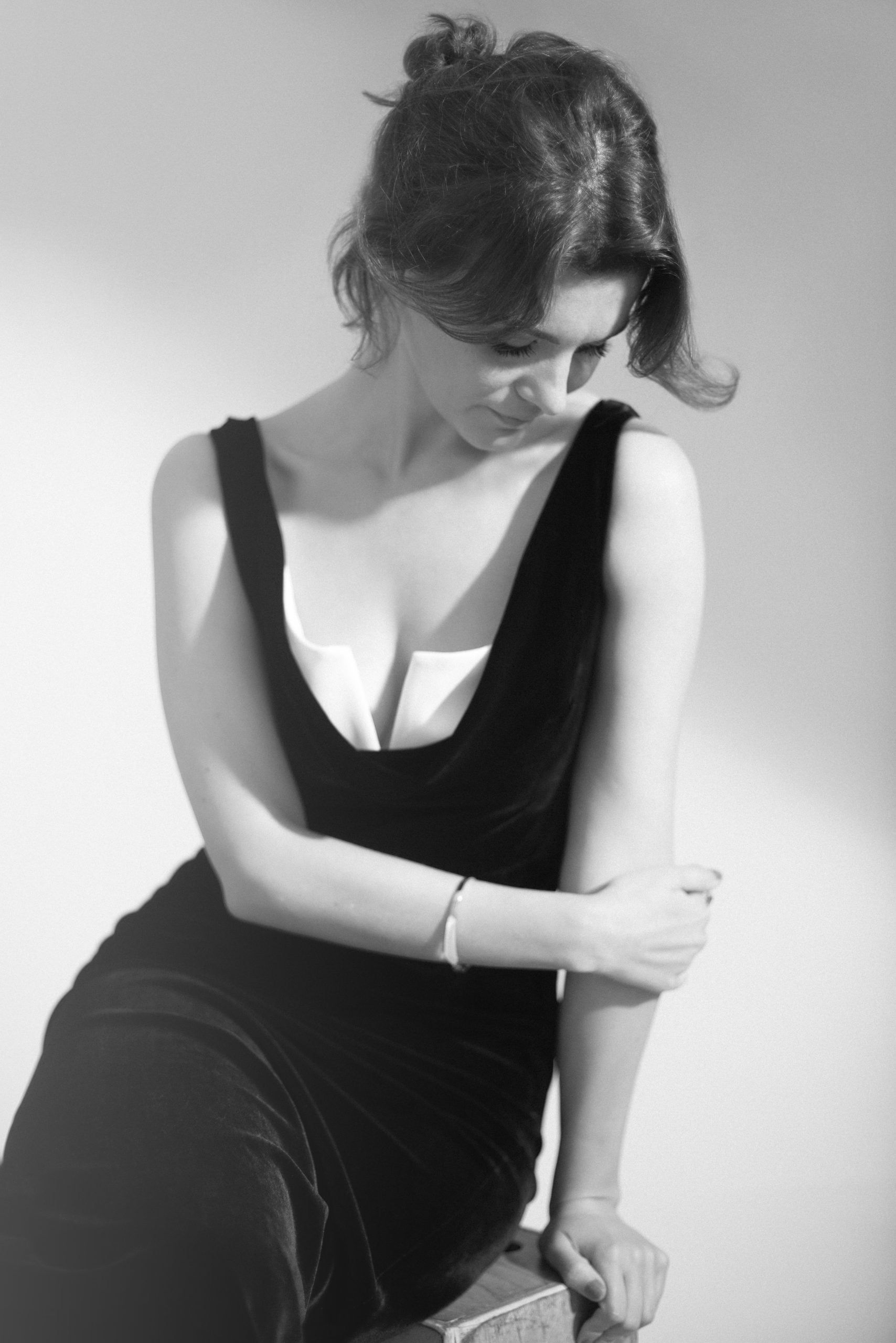
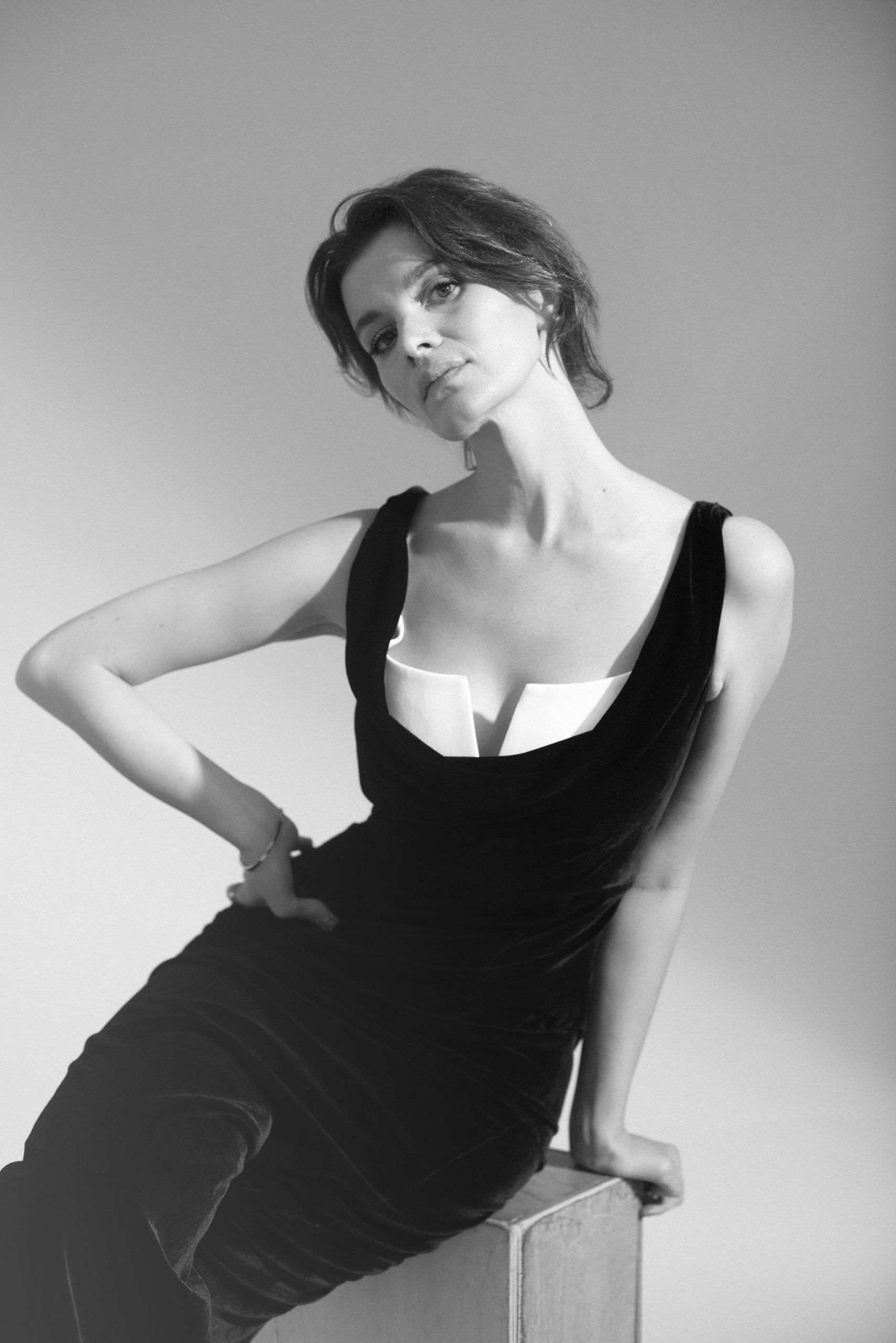
dress Roland Mouret jewellery Stephen Webster
Did much get changed in the preview period, sometimes scenes are taken out completely, or new scenes get added?
It was actually the first few previews where Michael did only a few cuts, purely because as soon as it’s in front of an audience you can gauge their reactions to things. But there were very few cuts at all which is a testament to Marcelo’s writing.
As an audience member, it’s so nice to see new writing be so immediately well received by both producers and audiences.
Having the birth of a new comedy straight into the West End does seem rare now, I look back and there was a time when every play I saw was a new play, it feels so rare that something can be brand new and start in the West End.
You mentioned your director, Michael Grandage, I am a big fan of Michael’s work. How was it working with him?
As amazing as I was expecting! I think because I’d met him a few times and I have just known of him as the pinnacle of theatre directors. He used to be an actor himself, and he just knows so much, he’s very much an actor’s director, which I now understand why so many amazing actors just want to work with him. He just understands the psyche of an actor, but also understands the process and approaches it from that perspective, rather than a kind of overview or a visual perspective, despite the fact he’s also a master at that!
He has a lightness of touch with what he does. He’s not an overly directive director, if that’s a phrase, but he just knows exactly what to say to each actor to make sure everyone’s on the same page. He’s been a delight, he makes a great fun atmosphere in the room. I mean, from day one, we were on our feet, which was kind of a more unique experience because normally there’s a bit of tablework in discussing 1979 and the royal family and stuff, but we did none of that. He was like ‘Let’s get it straight on its feet’ and we were playing from kind of the first day, which I think is a cool idea because sometimes you forget how to act if you’ve been sitting around a table for a few weeks. I just trust that he knows exactly what he’s doing, and you can just tell. Mike is very good at bringing a good group of people together, maybe it’s a good judge of character, I don’t know, but the cast is just gorgeous, it’s such a lovely group of people.
I think you can always tell as well as an audience member. When the cast is very solid, there’s very there’s that connection there.
Sometimes with comedy, it can become not quite competitive, but you’re all fighting for your own laughs, there’s an individualism to that. Whereas actually with this play, everybody is working for each other’s laughs, if that makes sense. We’re all on the same page, and we’re all doing it together, which is just so nice.
Mike actually said that his friends that have come to see it said something very sweet during bows, that they could tell we were all enjoying it and getting along so well. I hadn’t noticed but obviously, when you bow, that’s the moment the mask comes off and the performance is over but it was so nice that you can actually read that as an audience at the end.
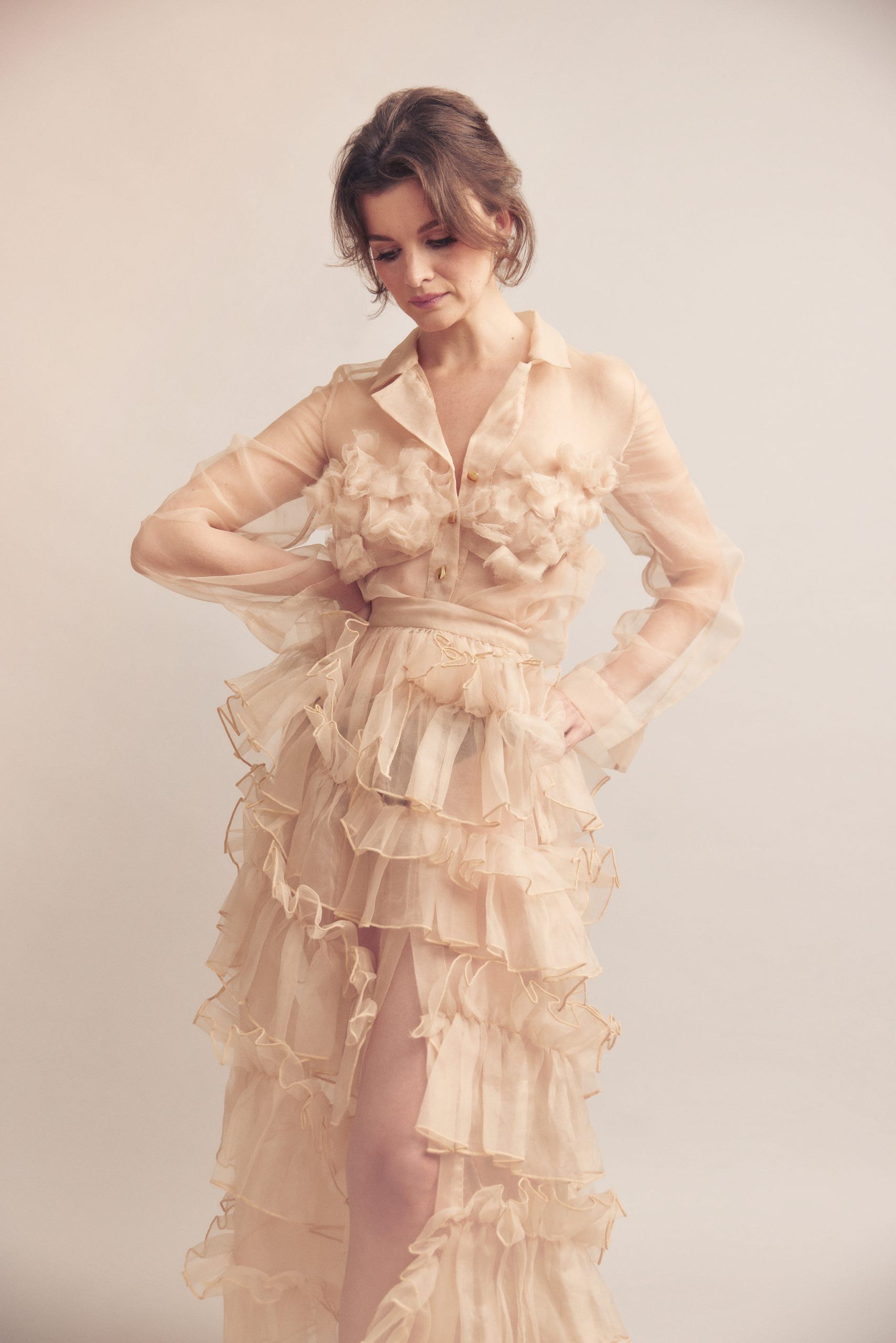
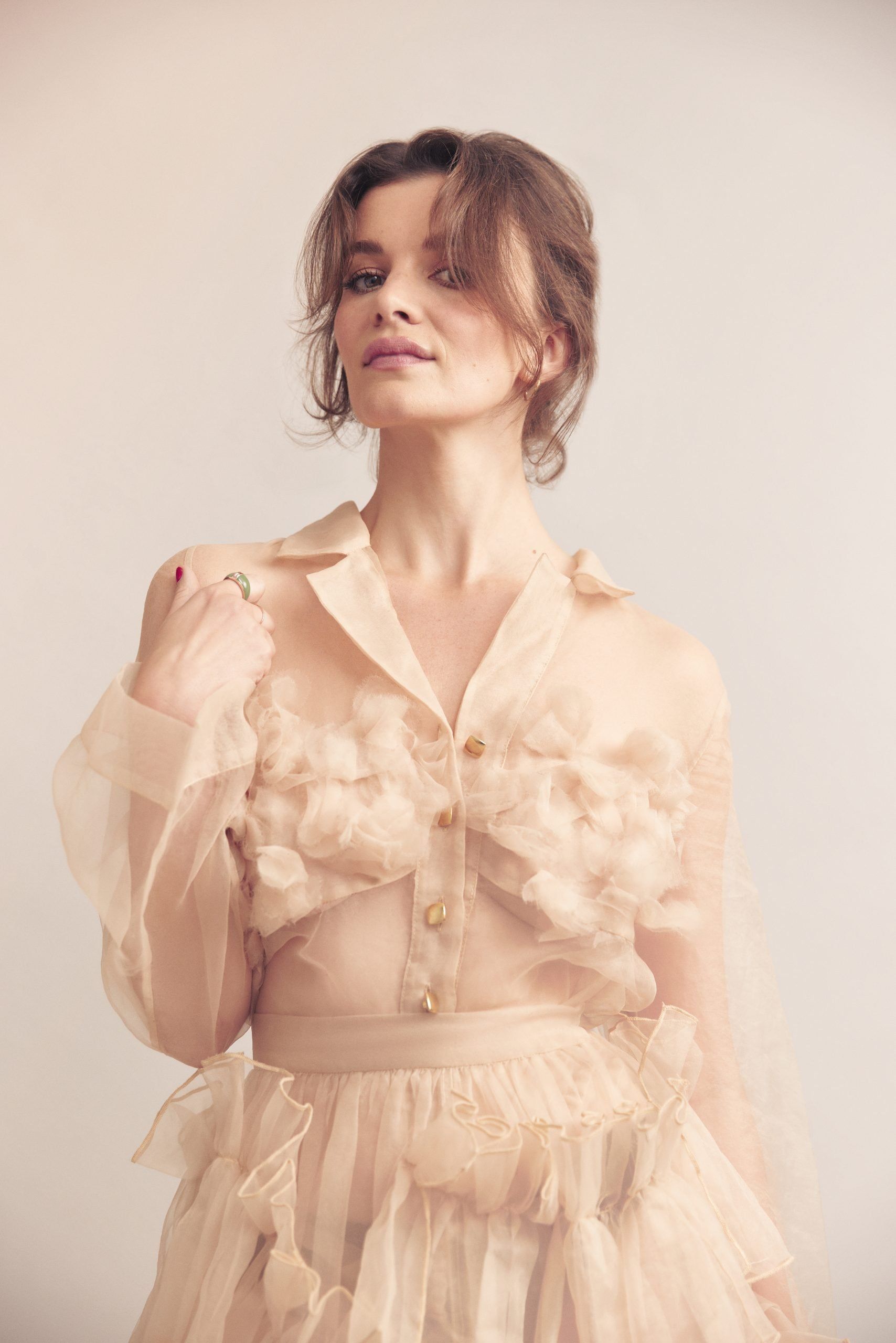
dress Syra J
Speaking of audiences, something that intrigued me was the fact that the show is based on the royal family which may appeal to older audiences, but the marketing for the show is quite fresh and appeals to a younger audience, many of whom may not even have been alive in her lifetime, yet are still coming to the play and loving it.
It feels a very varied audience. You’re right, it certainly isn’t lots of one type of retired people or people who may know the history of The Queen Mother. The marketing has been very good at trying to bring in the kind of 1979, punk, Thatcher coming to power era.
I think the royals are universal in so many ways, and for my generation, we don’t know much about The Queen Mother at all, there’s a line in the play where Billy says “We think about her like our own Nan but posher” and this play brings her into technicolour. She was this incredibly witty, fun-loving woman who loved the theatre and champagne. She was incredibly naughty, and that’s something that we just have no idea of.. I don’t know if older people knew that about her, either. I think it’s quite a unique story that I think could suit any age group. I’ve certainly found that new writing will bring in young people. I don’t know who the target audience is, but it’s felt like a very wide range thus far. Michael’s been good at helping young people come into the theatre, he releases lots of £10 seats for his shows which is amazing.
It’s wonderful to see efforts being made to theatre more accessible for all, now my final question has to be about the fact there are real corgis used in this show! My audience rightly went wild for them, how is it having them around?
They are the cutest things ever, they get applause pretty much as soon as they arrive on stage. Their names are Tring and Pumpkin, and they have been angels and it’s all worked like clockwork. It’s it’s just a very unique experience being on stage with live animals but touch wood nothing has gone wrong so far!
Backstairs Billy is playing at The Duke of Yorks Theatre until 27th January.
Interview Amelia Walker
Photography The Other Richard
Styling Bertie Taylor-Smith
Hair and Make-up Jade Bird

